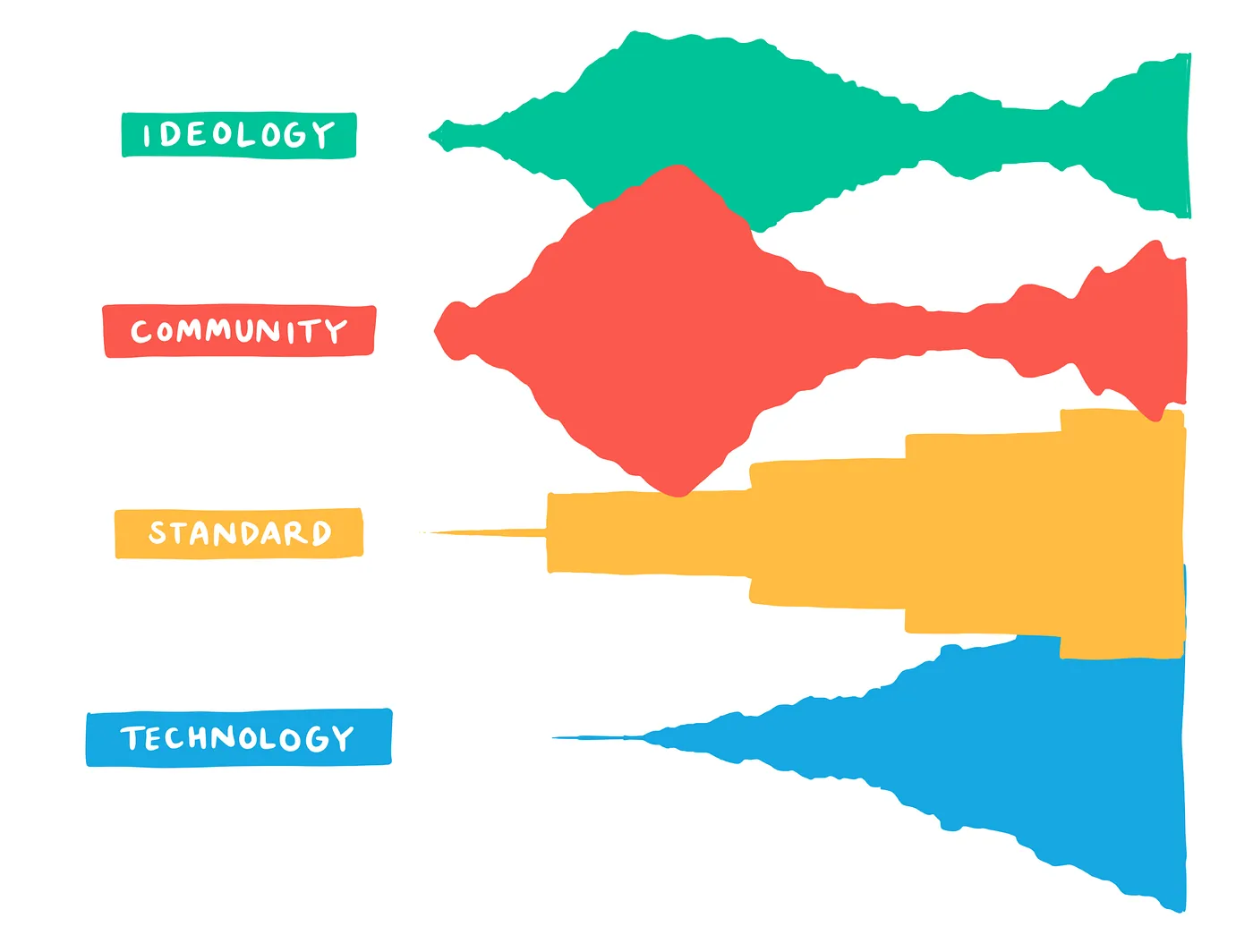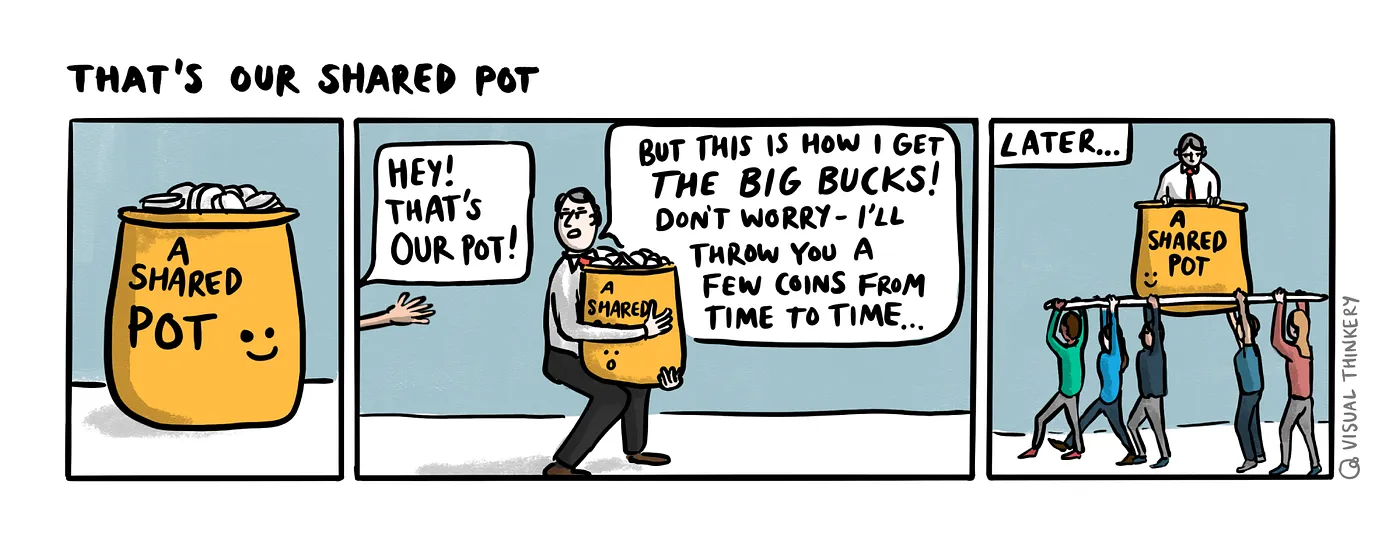Some things we’ve talked about in our cooperative
I thought it might be a good idea to try to describe the Tao, or the natural way, of WAO.
“In the Tao Te Ching, Laozi explains that the Tao is not a name for a thing, but the underlying natural order of the universe whose ultimate essence is difficult to circumscribe because it is non-conceptual yet evident in one’s being of aliveness.” (Wikipedia)

Doug and I, both founding members of WAO, have a podcast we called the Tao of WAO. The podcast is “A podcast about the intersection of technology, society, and internet culture — with a dash of philosophy and art for good measure.” We’re on hiatus right now, but there are 9 seasons you can enjoy!
WAO is a collective of individuals who broadly agree on many things. Like any group of people, there are nuanced differences in our positions on the issues of the day, so instead of corporate pronouncements, we write things like this Tao or stuff we’ve written on our spirit wiki page.
Using the taxonomy of our podcast tagline, I’ve developed 15 short statements that summarise some of our beliefs:
Technology in the Tao of WAO

Open source is preferred, practicality is required.
We advise our clients and friends on all kinds of technical matters. We have varying beliefs on when to use what kinds of platforms and this statement sums up our approach. We try to find Open Source solutions, but we know that there are a variety of factors — like staff technical skills, developer resources or feature requirements — that need to be taken into account. Sometimes the practical recommendation is the right one.
Open standards lead to a better world.
We are proponents, however, of open source technology and we understand how important it is that our technical infrastructure remains open. There are open standards that underpin much of what we use on a regular basis. The World Wide Web is built on an open standard and so is e-mail. If we want a better world, we need interoperability and cohesion within the tech landscape.
The wild and open Internet is the platform.
It doesn’t make sense to use the same structures, policies and platforms for different people, communities and organisations. There is nuance in every project, so we don’t limit ourselves by recommending the same tools all the time. Instead, we are constantly learning new ways to use the Internet to solve real-world problems. We start with the communities involved, then we figure out how to use the Internet to solve the problems the people within those communities are trying to solve.
Society

Worker owned cooperatives work.
We’re pretty invested in the idea of cooperation. It’s worth noting that cooperatives are not a small ‘subculture’ of the business world. The world’s top 300 cooperative businesses have a turnover of over two trillion dollars a year. 10% of all jobs on the planet are co-op jobs. This economic system is hiding in plain sight and the powers that be don’t want us to know that there is a different way.
Participation matters, so model the behaviours.
Cynics would say that in the grand scheme of things it doesn’t matter what a single person does. We would make a quip about a mosquito having big impact or steal a quote from Margaret Mead (“Never doubt that a small group of thoughtful, committed citizens can change the world; indeed, it’s the only thing that ever has.”) We all have influence and impact on other people, so model the behaviours you want to see in the world and know that your participation matters.
Communities move mountains.
We could steal that Margaret Mead quote a second time, actually. Or, we can simply underline our belief that it is the collective, made up of individuals, that makes the world a better place. There is a more prevalent narrative embedded in (especially) western societies, and it’s one we need to actively disagree with. When we form communities, big or small, we can create more opportunities for everyone.
Internet Culture

Digital literacies live on a never-ending continuum.
Dr Belshaw wrote his doctoral thesis on the 8 Essential Elements of Digital Literacies. In it, he writes about ambiguity, defining terms, problems with binary concepts and so, so much more. We at the co-op are keen to help others understand that there is no such thing as being “literate”, digitally or otherwise. Instead, we appreciate acceptance and enthusiasm around the idea that humans are always learning and there is always more to learn.
Structured participation leads to more participants.
Structure helps people find their way into a group. We live in a world of diversity, and yet we tend to hear only the loudest voices. Finding intentional ways to invite participation from more diverse groups of people helps build healthy communities.
Experiment and fail often and loudly.
We are a group of people that likes to try new things. We try to encourage one another to do so, both personally and professionally. We try to be reflective and vocal about our failures, since failing is such a great way to learn.
Philosophy

Learning happens everywhere.
Our brains are constantly changing their very structures. Every day new inputs and impulses work to change the neural pathways that run our whole bodies. We are always learning, even if we’re not trying to. This learning happens at work, in classrooms, at the neighbour’s house, and all forms of learning deserve to be recognised.
Consent-based governance is empowering.
At the co-op we solve prickly problems with a sociocratic approach to decision making. We discuss a proposal and rework it until all members can consent to a decision being made. Governing our cooperative this way means that every member has an invitation to unpick how they’re feeling about something so that everyone can be comfortable in our collective efforts.
We bring our full selves to work.
We have, together, taken courses on conflict resolution and alternative governance structures so that we can bring our full selves to work. We talk to each other about things that are going on inside our minds and do our best to figure out the difference between a perception and an intention. We are human, it’s ok to feel, talking about that helps us work better together.
Art

Remix is a compliment.
We’re big believers in open licensing, partially because we love to expand and remix ideas, graphics and artwork. Open licensing gives us, as creative folks, the ability to make a thing and credit where the original idea came from. Because Doug published his AI generated photographs “Time’s Solitary Dance” under an open license, I could take them and write a kind of story to them without asking. It became a collaborative art piece.
Bad poetry is just poetry that is bad, and that’s ok.
Bad poetry written by humans is ok, bad poetry written by AI is just bad. We’re honest enough with ourselves to admit when something we’ve done is kind of terrible, like these last few entries into the Tao of WAO.
The Tao of WAO isn’t a thing, it is ephemeral.
If you ask us in a year what we think of this post, we’ll probably say “Heh? What Tao of WAO post, that’s a podcast!” Then you’ll bring this up and it will have my name on it and I’ll feel embarrassed. Looking forward to it!
What’s your Tao?
Need help figuring it out? We need more weird and wonderful projects, so get in touch!